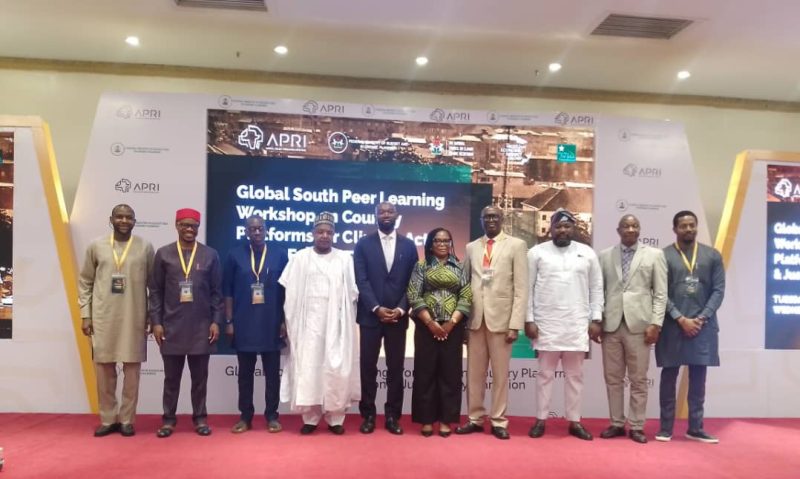In order to accelerate Nigeria’s just transition and economic development objectives, experts have called for more funding to help the country promote climate action.

According to them, this demand has become necessary due to the nation’s limited resources, which have hampered economic activity and climatic resilience.
Speaking on Tuesday, April 29, 2025, in Abuja at a function hosted by the National Council on Climate Change Secretariat (NCCCS), Nigeria’s Minister of Budget and Economic Planning, Senator Abubakar Bagudu, bemoaned the country’s problems, which range from land degradation to mineral exploitation and insurgency.
Another important issue cited by the minister as requiring urgent attention is access to clean water for cooking in places affected by oil and gas activity, which he believes can be addressed through shared global wealth.
“We have been a high participant in the funding of the World Bank and International Monetary Fund (IMF), and Nigeria is setting and integrating strategies to fast-track investment resources to correct decades of underinvestment,” he stated.
The minister described the workshop, which focused on Global South Peer Learning on Country Platforms for Climate Action and Just Energy Transition, as a positive step that reflected Nigeria’s global commitment to economic, social, and environmental goals.
He advocated for more similar meetings to allow Nigeria to learn from other countries about how they addressed some of the difficulties it is facing and ensured that the correct thing was done.
In his opinion, investing in regions where clean energy can be produced – particularly hydro – is more important than simply moving away from oil and gas.
Sen. Bagudu continued by mentioning drought and flooding as two more significant climate-related problems that need to be addressed because of their effects on socioeconomic advancement.
As a result, he urged for the adoption of modern techniques, which he connected to the availability of funding investment.
He informed participants that the president has made economic decisions that will steer Nigeria’s economy in the right path and boost growth in all areas of the economy.
“When we make the measures we have taken, we have to steer the economy in the right direction,” the nation’s minister of budget and economic planning asserts.
Commenting about the workshop’s goal, Dr. Olumide Abimbola, Executive Director of the Africa Policy Research Institute (APRI), stated that the knowledge, relationships, and pledges made during the next two days of the programme will put Nigeria and its partners in the global south in a position to lead with ambition.
Furthermore, the APRI boss indicated that it will also improve clarity and audacity by sharing practical lessons on developing country platforms and development plans to face the global economic crisis.
In his view, insights from South Africa, Indonesia, Senegal, and Vietnam will directly inform Nigeria’s upcoming national development plan, assisting the ministry of budget and economic planning’s mandate and national stakeholders in coordinating a just, inclusive, climate-aware, and climate-sensitive development strategy.
“This is a moment to reflect honestly,” Dr. Abimbola said. “Have we at least delivered tangible results on the ground, or have they overpromised and under delivered?”
According to him, it is also time to imagine, to seize chances for African agency, ownership, and creativity, and to establish resilient investment platforms, leverage important mineral resources, and strengthen global South partnerships, rather than simply seeking pledges.
“We have been very intentional on what works, and how to build ownership and trust among domestic stakeholders, and to navigate the shifting global financing environment, given the current geopolitical climate,” he hinted.
As the world prepares for the Conference of Parties (COP30), which will be held in Belém, Brazil, later in November, he urged Nigeria to look ahead to more genuine Global South leadership, stronger public-private-civil society collaborations and partnerships, and a more honest, practical approach to securing climate resilience.
By Nsikak Emmanuel Ekere, Abuja
